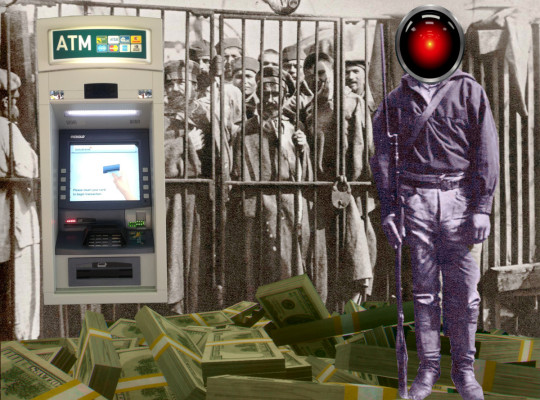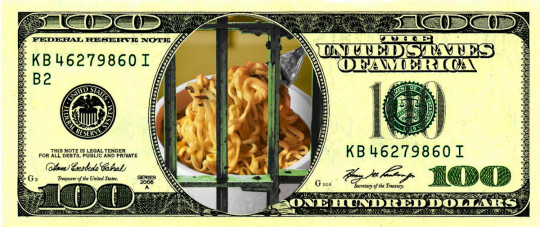#captive state
Text





My Top Five Favorite Ben Daniels Characters (Action) - Honorable Mentions: 3. Daniel Larkin - Captive State (2019).
19 notes
·
View notes
Text




Captive State (2019) directed by Rupert Wyatt
Been putting off watching Captive State for years after it got a lot of negative reception.
I loved it and I'm baffled by a lot of the complaints I've read in old threads. I'm convinced these people fell asleep during the movie or something.
Highly recommended if you like District 9 and slow-burns. Also the soundtrack is fantastic.




#Captive State#2019#Rupert Wyatt#Erica Beeney#Alex Disenhof#Rob Simonsen#John Goodman#Ashton Sanders#Jonathan Majors#Colson Baker#Vera Farmiga#Kevin Dunn#Alan Ruck#Kevin J O'Connor#James Ransone#Ben Daniels#sci fi thriller#sci fi film#sci fi movies#District 9#movie photography#movie screenshots#film#movies#cinema#cinephile#movie stills#film screencaps#film screenshots#atmospheric
9 notes
·
View notes
Text

#happybirthday #jonathanmajors #actor #TimeKeepers #HeWhoRemains #VictorTimely #KangtheConqueror #Loki #AntManandtheWaspQuantumania #Hostiles #OutofBlue #CaptiveState #TheLastBlackManinSanFrancisco #Jungleland #Da5Bloods #LovecraftCountry #TheHarderTheyFall #Devotion #creed3
#happybirthday#jonathan majors#actor#timekeepers#he who remains#victor timely#kang the conqueror#loki#ant man and the wasp quantumania#hostiles#outofblue#captive state#thelastblackmaninsanfrancisco#jungleland#da 5 bloods#lovecraft country#the harder they fall#devotion#creed 3
5 notes
·
View notes
Text
Meet Mohammed Nazzal, a Palestinian child. He was in administrative arrest (this means he can stay held captive without charge for as long as israel decides, also look it up for better understanding) without charge or trial in Israeli occupation prisons and was released yesterday as part of the hostages exchange.
"They shattered metal bars on me, beating me non-stop on my head, broke my hands. They starved me."
#watch and share these interviews#they put things into perspective esp with israelis going around calling Palestinian kids held captive as terrorists#this child is from the jenin#palestine#gaza#israel#important#current events#free palestine#ethnic cleansing#free gaza#gaza strip#gaza under attack#colonialism#israel apartheid#israel is an apartheid state#israel is terrorist#israel is a terrorist state#free palestine 🇵🇸#from the river to the sea palestine will be free#save the children#video
14K notes
·
View notes
Text

0 notes
Text
Prison-tech company bribed jails to ban in-person visits

I'm on tour with my new, nationally bestselling novel The Bezzle! Catch me in BOSTON with Randall "XKCD" Munroe (Apr 11), then PROVIDENCE (Apr 12), and beyond!

Beware of geeks bearing gifts. When prison-tech companies started offering "free" tablets to America's vast army of prisoners, it set off alarm-bells for prison reform advocates – but not for the law-enforcement agencies that manage the great American carceral enterprise.
The pitch from these prison-tech companies was that they could cut the costs of locking people up while making jails and prisons safer. Hell, they'd even make life better for prisoners. And they'd do it for free!
These prison tablets would give every prisoner their own phone and their own video-conferencing terminal. They'd supply email, of course, and all the world's books, music, movies and games. Prisoners could maintain connections with the outside world, from family to continuing education. Sounds too good to be true, huh?
Here's the catch: all of these services are blisteringly expensive. Prisoners are accustomed to being gouged on phone calls – for years, prisons have done deals with private telcos that charge a fortune for prisoners' calls and split the take with prison administrators – but even by those standards, the calls you make on a tablet are still a ripoff.
Sure, there are some prisoners for whom money is no object – wealthy people who screwed up so bad they can't get bail and are stewing in a county lockup, along with the odd rich murderer or scammer serving a long bid. But most prisoners are poor. They start poor – the cops are more likely to arrest poor people than rich people, even for the same crime, and the poorer you are, the more likely you are to get convicted or be suckered into a plea bargain with a long sentence. State legislatures are easy to whip up into a froth about minimum sentences for shoplifters who steal $7 deodorant sticks, but they are wildly indifferent to the store owner's rampant wage-theft. Wage theft is by far the most costly form of property crime in America and it is almost entirely ignored:
https://www.theguardian.com/us-news/2023/jun/15/wage-theft-us-workers-employees
So America's prisons are heaving with its poorest citizens, and they're certainly not getting any richer while they're inside. While many prisoners hold jobs – prisoners produce $2b/year in goods and $9b/year in services – the average prison wage is $0.52/hour:
https://www.dollarsandsense.org/archives/2024/0324bowman.html
(In six states, prisoners get nothing; North Carolina law bans paying prisoners more than $1/day, the 13th Amendment to the US Constitution explicitly permits slavery – forced labor without pay – for prisoners.)
Likewise, prisoners' families are poor. They start poor – being poor is a strong correlate of being an American prisoner – and then one of their breadwinners is put behind bars, taking their income with them. The family savings go to paying a lawyer.
Prison-tech is a bet that these poor people, locked up and paid $1/day or less; or their families, deprived of an earner and in debt to a lawyer; will somehow come up with cash to pay $13 for a 20-minute phone call, $3 for an MP3, or double the Kindle price for an ebook.
How do you convince a prisoner earning $0.52/hour to spend $13 on a phone-call?
Well, for Securus and Viapath (AKA Global Tellink) – a pair of private equity backed prison monopolists who have swallowed nearly all their competitors – the answer was simple: they bribed prison officials to get rid of the prison phones.
Not just the phones, either: a pair of Michigan suits brought by the Civil Rights Corps accuse sheriffs and the state Department of Corrections of ending in-person visits in exchange for kickbacks from the money that prisoners' families would pay once the only way to reach their loved ones was over the "free" tablets:
https://arstechnica.com/tech-policy/2024/03/jails-banned-family-visits-to-make-more-money-on-video-calls-lawsuits-claim/
These two cases are just the tip of the iceberg; Civil Rights Corps says there are hundreds of jails and prisons where Securus and Viapath have struck similar corrupt bargains:
https://civilrightscorps.org/case/port-huron-michigan-right2hug/
And it's not just visits and calls. Prison-tech companies have convinced jails and prisons to eliminate mail and parcels. Letters to prisoners are scanned and delivered their tablets, at a price. Prisoners – and their loved ones – have to buy virtual "postage stamps" and pay one stamp per "page" of email. Scanned letters (say, hand-drawn birthday cards from your kids) cost several stamps:
https://pluralistic.net/2024/02/14/minnesota-nice/#shitty-technology-adoption-curve
Prisons and jails have also been convinced to eliminate their libraries and continuing education programs, and to get rid of TVs and recreational equipment. That way, prisoners will pay vastly inflated prices for streaming videos and DRM-locked music.
The icing on the cake? If the prison changes providers, all that data is wiped out – a prisoner serving decades of time will lose their music library, their kids' letters, the books they love. They can get some of that back – by working for $1/day – but the personal stuff? It's just gone.
Readers of my novels know all this. A prison-tech scam just like the one described in the Civil Rights Corps suits is at the center of my latest novel The Bezzle:
https://us.macmillan.com/books/9781250865878/thebezzle
Prison-tech has haunted me for years. At first, it was just the normal horror anyone with a shred of empathy would feel for prisoners and their families, captive customers for sadistic "businesses" that have figured out how to get the poorest, most desperate people in the country to make them billions. In the novel, I call prison-tech "a machine":
a million-armed robot whose every limb was tipped with a needle that sank itself into a different place on prisoners and their families and drew out a few more cc’s of blood.
But over time, that furious empathy gave way to dread. Prisoners are at the bottom of the shitty technology adoption curve. They endure the technological torments that haven't yet been sanded down on their bodies, normalized enough to impose them on people with a little more privilege and agency. I'm a long way up the curve from prisoners, but while the shitty technology curve may grind slow, it grinds fine:
https://pluralistic.net/2021/02/24/gwb-rumsfeld-monsters/#bossware
The future isn't here, it's just not evenly distributed. Prisoners are the ultimate early adopters of the technology that the richest, most powerful, most sadistic people in the country's corporate board-rooms would like to force us all to use.

If you'd like an essay-formatted version of this post to read or share, here's a link to it on pluralistic.net, my surveillance-free, ad-free, tracker-free blog:
https://pluralistic.net/2024/04/02/captive-customers/#guillotine-watch

Image:
Cryteria (modified)
https://commons.wikimedia.org/wiki/File:HAL9000.svg
CC BY 3.0
https://creativecommons.org/licenses/by/3.0/deed.en
--
Flying Logos
https://commons.wikimedia.org/wiki/File:Over_$1,000,000_dollars_in_USD_$100_bill_stacks.png
CC BY-SA 4.0
https://creativecommons.org/licenses/by-sa/4.0/deed.en
--
KGBO
https://commons.wikimedia.org/wiki/File:Suncorp_Bank_ATM.jpg
CC BY-SA 3.0
https://creativecommons.org/licenses/by-sa/3.0/deed.en
#pluralistic#prison#prison-tech#marty hench#the bezzle#securus#captive audiences#St Clair County#human rights#prisoners rights#viapath#gtl#global tellink#Genesee County#michigan#guillotine watch#carceral state#corruption
1K notes
·
View notes
Text
Film Journal
"Captive State" by Rupert Wyatt

0 notes
Text
#Captive State#Jonathan Majors#John Goodman#Chicago#Sci-Fi#Apocalypse#Post-Apocalypse#movies#film#movie review#movie#film review#movie critic#film critic#film criticism#movie criticism#post apocalypse
0 notes
Text
[Captive State]
The hunters in captive state are so cool. I mean they just came down to earth and just fuckin walk off from wherever they landed to do what they came for. I mean they were bad but really cool looking.
1 note
·
View note
Text

#russia is a terrorist state#russian war crimes#russian captives#Ukrainian#ukraine#crimea is ukraine
114 notes
·
View notes
Text

Mustache Monday: Ben as Daniel Larkin in Captive State (2019)!
9 notes
·
View notes
Text
If I only had a penny for every time
1. One half of my OTP was a bookworm and buttoned up till the chin *coughs* sexy librarian *coughs*
2. And the other half dressed like a bad bitch and did dumb shit
I’d have 4 pennies by now…





Clearly, I have a type… or a problem
#cherik#ineffable husbands#firstprince#lamen#good omens#red white and royal blue#captive prince#charles xavier#erik lehnsherr#aziraphel#anthony j crowley#harry fox#alex claremont diaz#laurent of vere#damen of akielos#jjcherik#jjlamen#I can believe I have to state before hand that obv this is for fun#🙄
295 notes
·
View notes
Text

beyondlaw, anyone?
dnkinktober day 8: murder kink | day 22: blood kink | day 29 gun/knife play
#death note#death note fanart#l lawliet#beyond birthday#beyondlaw#b x L#beyond birthday x L#los angeles bb murder cases#labb#my art#dnkinktober#wanted to do something for some rare pairs this kinktober#and i really wanted to do beyondlaw soooooo#this artstyle has overtaken me yet again#it used to be my main-ish style but i haven’t touched it in a while#but my heart has been captivated by it once again#i missed being able to scribble everywhere and ignore realism#it’s my default state tbh but for the last while i’ve been jumping around styles#don’t know how long i’ll be with this so if you see a lot more of this for kinktober that’s why#but i do have a couple pieces done in a different style that haven’t come yet#this style is useful in that i don’t need to spend so long on linework so i get more free time to write. which i am doing for a prompt soon#it’ll be my first finished fic (i’ve had others knocking around my head and spread across word docs but none are finished)#i’m excited (and ignoring so much schoolwork for it lol)
137 notes
·
View notes
Text
«Another exchange of prisoners took place: Ukraine returned 100 people from russian captivity»— Head of the Office of the President.
Among them also Valeriia Karpylenko from "Azovstal",whose husband, Andrii Subotin, unfortunately was killed just three days after their wedding:


The Coordinating Headquarters for the Treatment of Prisoners of War reported that 80 men and 20 women were released. Nine are officers, all the rest are privates and sergeants.
Almost half of them are seriously injured, sick or have been tortured. The youngest is 19 years old.
#Ukraine#russia is a terrorist state#russian war crimes#ЗСУ#Armed Forces of Ukraine#повернення з полону#ukrainians in captivity#prisoners exchange#обмін полоненими#russian terrorism#russian war on ukraine#fuck russia#stand with ukraine#support ukraine#Україна переможе
232 notes
·
View notes
Text

1 note
·
View note
Text
Greedflation, but for prisoners

I'm touring my new, nationally bestselling novel The Bezzle! Catch me TOMORROW (Apr 21) in TORINO, then Marin County (Apr 27), Winnipeg (May 2), Calgary (May 3), Vancouver (May 4), and beyond!

Today in "Capitalists Hate Capitalism" news: The Appeal has published the first-ever survey of national prison commissary prices, revealing just how badly the prison profiteer system gouges American's all-time, world-record-beating prison population:
https://theappeal.org/locked-in-priced-out-how-much-prison-commissary-prices/
Like every aspect of the prison contracting system, prison commissaries – the stores where prisoners are able to buy food, sundries, toiletries and other items – are dominated by private equity funds that have bought out all the smaller players. Private equity deals always involve gigantic amounts of debt (typically, the first thing PE companies do after acquiring a company is to borrow heavily against it and then pay themselves a hefty dividend).
The need to service this debt drives PE companies to cut quality, squeeze suppliers, and raise prices. That's why PE loves to buy up the kinds of businesses you must spend your money at: dialysis clinics, long-term care facilities, funeral homes, and prison services.
Prisoners, after all, are a literal captive market. Unlike capitalist ventures, which involve the risk that a customer will take their business elsewhere, prison commissary providers have the most airtight of monopolies over prisoners' shopping.
Not that prisoners have a lot of money to spend. The 13th Amendment specifically allows for the enslavement of convicted criminals, and so even though many prisoners are subject to forced labor, they aren't necessarily paid for it:
https://pluralistic.net/2024/04/02/captive-customers/#guillotine-watch
Six states ban paying prisoners anything. North Carolina caps prisoners' pay at one dollar per day. Nationally, prisoners earn $0.52/hour, while producing $11b/year in goods and services:
https://www.dollarsandsense.org/archives/2024/0324bowman.html
So there's a double cruelty to prison commissary price-gouging. Prisoners earn far less than any other kind of worker, and they pay vastly inflated prices for the necessities of life. There's also a triple cruelty: prisoners' families – deprived of an incarcerated breadwinner's earnings – are called upon to make up the difference for jacked up commissary prices out of their own strained finances.
So what does prison profiteering look like, in dollars and sense? Here's the first-of-its-kind database tracking the costs of food, hygiene items and religious items in 46 states:
https://theappeal.org/commissary-database/
Prisoners rely heavily on commissaries for food. Prisons serve spoiled, inedible food, and often there isn't enough to go around – prisoners who rely on the food provided by their institutions literally starve. This is worst in prisons where private equity funds have taken over the cafeteria, which is inevitable accompanied by swingeing cuts to food quality and portions:
https://theappeal.org/prison-food-virginia-fluvanna-correctional-center/
So you have one private equity fund starving prisoners, and another that's gouging them on food. Or sometimes it's the same company. Keefe Group, owned by HIG Capital, provides commissaries to prisons whose cafeterias are managed by other HIG Capital portfolio companies like Trinity Services Group. HIG also owns the prison health-care company Wellpath – so if they give you food poisoning, they get paid twice.
Wellpath delivers "grossly inadequate healthcare":
https://theappeal.org/massachusetts-prisons-wellpath-dentures-teeth/
And Trinity serves "meager portions of inedible food":
https://theappeal.org/clayton-county-jail-sheriff-election/
When prison commissaries gouge on food, no part of the inventory is spared, even the cheapest items. In Florida, a packet of ramen costs $1.06, 300% more inside the prison than it does at the Target down the street:
https://www.documentcloud.org/documents/24444312-fl_doc_combined_commissary_lists#document/p6/a2444049
America's prisoners aren't just hungry, they're also hot. The climate emergency is sending temperatures in America's largely un-air-conditioned prisons soaring to dangerous levels. Commissaries capitalize on this, too: an 8" fan costs $40 in Delaware's Sussex Correctional Institution. In Georgia, that fan goes for $32 (but prisoners are not paid for their labor in Georgia pens). And in scorching Texas, the commissary raised the price of water by 50% last summer:
https://www.tpr.org/criminal-justice/2023-07-20/texas-charges-prisoners-50-more-for-water-for-as-heat-wave-continues
Toiletries are also sold at prices that would make an airport gift-shop blush. Need denture adhesive? That's $12.28 in an Idaho pen, triple the retail price. 15% of America's prisoners are over 55. The Keefe Group – sister company to the "grossly inadequate" healthcare company Wellpath – operates that commissary. In Oregon, the commissary charges a 200% markup on hearing-aid batteries. Vermont charges a 500% markup on reading glasses. Imagine spending decades in prison: toothless, blind, and deaf.
Then there's the religious items. Bibles and Christmas cards are surprisingly reasonable, but a Qaran will run you $26 in Vermont, where a Bible is a mere $4.55. Kufi caps – which cost $3 or less in the free world – go for $12 in Indiana prisons. A Virginia prisoner needs to work for 8 hours to earn enough to buy a commissary Ramadan card (you can buy a Christmas card after three hours' labor).
Prison price-gougers are finally facing a comeuppance. California's new BASIC Act caps prison commissary markups at 35% (California commissaries used to charge 63-200% markups):
https://theappeal.org/price-gouging-in-california-prisons-newsom-signature/
Last year, Nevada banned any markup on hygiene items:
https://www.leg.state.nv.us/App/NELIS/REL/82nd2023/Bill/10425/Overview
And prison tech monopolist Securus has been driven to the brink of bankruptcy, thanks to the activism of Worth Rises and its coalition partners:
https://pluralistic.net/2024/04/08/money-talks/
When someone tells you who they are, believe them the first time. Prisons show us how businesses would treat us if they could get away with it.

If you'd like an essay-formatted version of this post to read or share, here's a link to it on pluralistic.net, my surveillance-free, ad-free, tracker-free blog:
https://pluralistic.net/2024/04/20/captive-market/#locked-in
#pluralistic#carceral state#price gouging#greedflation#prisons#the bezzle#captive markets#capitalists hate capitalism#monopolies#the appeal#keefe group#hig capital#guillotine watch#wellpath#trinity services group#sussex correctional institute#cooked alive#air conditioning#climate change#idaho#oregon#freedom of religion#vermont#florida#kentucky#georgia#arkansas#wyoming#missouri#ramen
167 notes
·
View notes